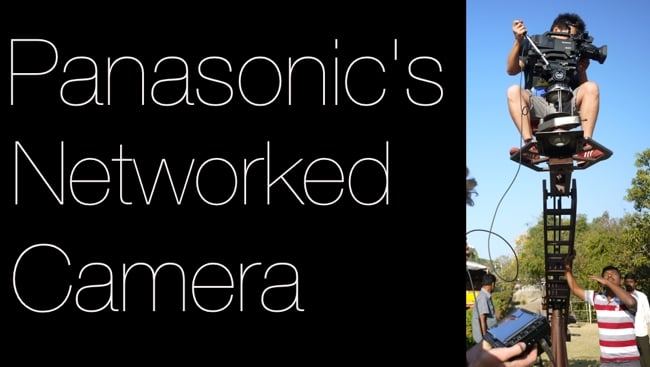
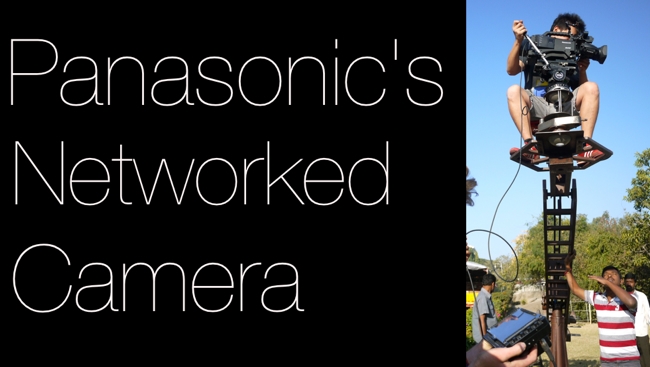 AG-HPX600 HPX600
AG-HPX600 HPX600
Equipped with a proxy encoder and WiFi module the Panasonic AG-HPX600 ushers in an era of the camera-server that enables remote operation, screening, and collaboration, on a level we haven’t previously experienced. Barry Braverman reports
In January I had the opportunity to work with the new camera on a short narrative project produced jointly by Chapman University and the Annapurna School of Film and Media in Hyderabad India. The HPX600 is designed primarily as a non-fiction news/documentary camera and so it was clearly working outside its normal job description in a Bollywood production environment.
Impressive signal to noise ratio
Performance was about what might be expected in a latest-generation mid-level camcorder. The camera utilizing 2/3-inch standard B4 mount lenses captures very professional images at 10-bits 4:2:2 to AVC-Intra P2 (upgradable to AVC-Ultra) in a compact shoulder-configured package. The newly developed single-MOS sensor with F12 sensitivity and impressive 59dB S/N ratio is very quiet with little noise apparent in the darkest shadows.
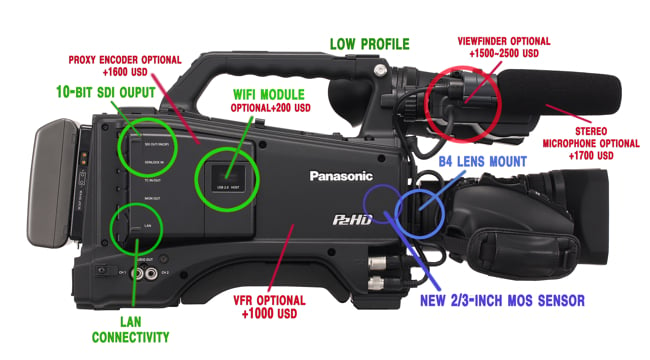
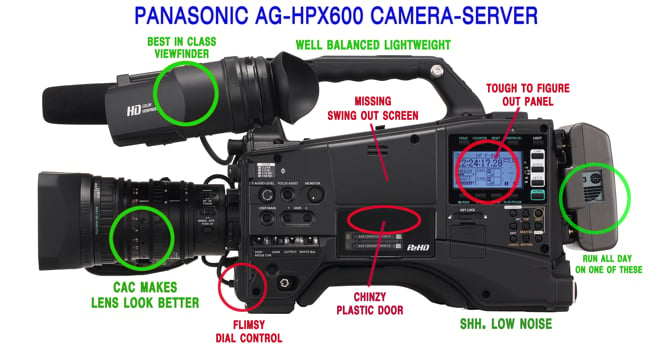
The HPX600 at 2.8kg (6.2lbs) sans battery, viewfinder, or accessories, is remarkably lightweight and well balanced. Its low profile makes the camera a joy to hold and peer over, watching as we always must for potential perils approaching from the blind side. The optional two-way color viewfinder doubles as an LCD screen and may well be the best performing viewfinder Panasonic has ever produced. The camera’s power draw is a scant 17W without the WiFi board or encoder, so a single Dionic 90 may last as it did for me an entire shooting day. I liked the new raised case protecting the side toggles. From experience I know these switches can be re-positioned inadvertently in the fury of a shooter’s daily struggle.
Onboard encoder for QuickTime proxies
Despite these improvements the real story here is operational. The HPX600 equipped with the optional encoder board produces high-resolution QuickTime proxies, which can be streamed via WiFi or wired LAN and viewed in the browser of a laptop, iPad, tablet, or smartphone. The camera thus supports a bevy of remote operations from simple editing of the H.264 proxy videos, to camera setup and operation, and screening of videos in more or less real time* from across the room or around the world. *Note there is a several second latency in the streaming video that takes some getting used to when viewed around a live set.
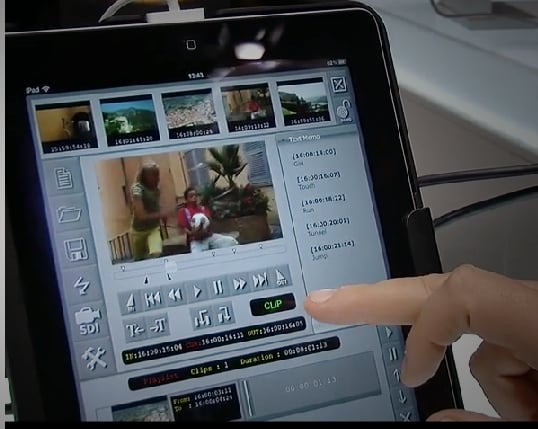
Notable shortcomings of the HPX600 include a new multi-functional menu screen that is maddeningly non-intuitive; the camera lacks a swing-out LCD so shooters must rely on a less manoeuvrable viewfinder limited to the horizontal and vertical axes. The viewfinder lacks a proper tension ring to positively secure the finder to the camera body, and I also didn’t like the flimsy plastic sliding door covering the P2 cards and the chintzy menu dial control borrowed from the company’s lower price stable of cameras.
Revolutionary
The HPX600 camera-server is revolutionary in many respects and a harbinger of greater things to come. Its operational advantages and network-aware features reflect Panasonic’s forward thinking; the challenge for the company now facing obvious price pressure is not to forget all the other more basic operating features like a rugged construction and easy-to-decipher menus.
Tags: Technology


Comments